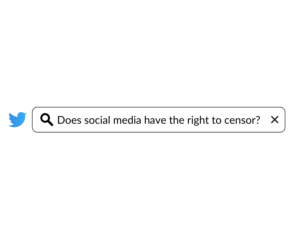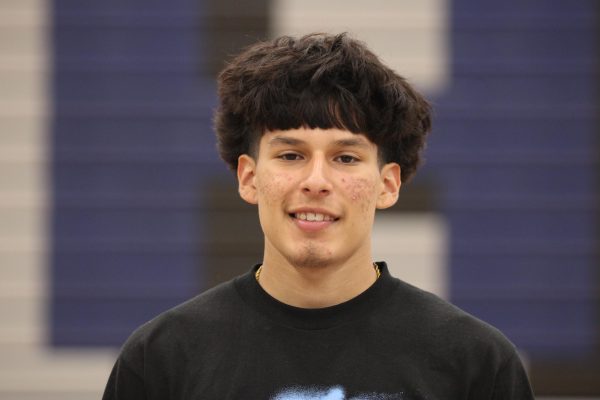Private companies can censor your content
January 25, 2023
The Bill of Rights First Amendment grants the freedom of speech to all American citizens. However, with the rising use of social media and other websites, these rights can be confusing. Social media companies have banned certain people from their sites for what they post or say online. While it has been said this is against the First Amendment’s freedom of speech, others believe private social media companies are within their rights to stop someone from posting on their website.
The use of social media is still relatively new and as such, laws or regulations have not been created for the original problems the internet has produced. In order to sign up for a social media account, most companies have you agree to their terms and conditions. These conditions often include when or why your account could be banned or censored. Social media companies are also private businesses. They do not have to allow people to post or have full freedom of speech. Students are often reminded of their digital footprint and how everything they post can never truly be deleted. Anything done on social media can be used against a person, whether online, in person, or in a courtroom.
Many celebrities use social media to connect with their fans and as such, the posts or words of these celebrities can reach millions of people very quickly. If a social media company doesn’t support the message of a celebrity or any other person they can ban them or censor their content. An example of this is Kanye West. Kanye is an American rapper and a fashion designer, who has recently made controversial statements on his social media. In October, Kanye was suspended from both Instagram and Twitter for ‘antisemitic’ posts. Twitter owner Elon Musk said, “(Kanye has) violated our rule against incitement to violence.” There are often rules already in place to prevent hate speech on social media platforms. The use of hate speech can warrant an account being suspended, censored and or banned.
Kanye West is not the only prominent figure to be banned on social media websites. Former President Donald Trump has also been banned from social media sites, such as Twitter and Facebook. He was banned for inciting violence that led to the riot at the United States Capitol on Jan.6 , 2021. Many of his followers were distraught over him being banned on social media. They protested citing the former president’s First Amendment Rights were being violated over his accounts being suspended. However, Twitter and Facebook said Trump had broken their rules for inciting violence and hate speech.
Often, when a user has been censored by a social media website, it is for using slanderous behavior or inciting harassment against a person or a group of people. Social media websites want as many people as possible to participate on their platform. When people are harassed online, they leave and the company loses revenue. For example, with the rise of antisemitism on social media platforms, in the form of jokes or blatant hate, Jewish people may not feel safe enough to exist on that particular social media site. To prevent large groups of people from leaving a platform, social media companies can instead censor the user from harassing a person or group of people, creating a safer space online for all users.
Social media sites do not necessarily have to uphold people’s First Amendment Rights as they are private companies. This has been shown through multiple celebrities being suspended over comments or posts they have made. Social media companies have rules in place to allow their sites to be inclusive towards all types of people. When these rules are broken, people may not feel comfortable or safe on the internet. The freedom of speech should be upheld, but private businesses do not have to allow insensitive posts to be made on their sites. While private companies do not take away the freedom of speech of individuals, they do restrict it on their platform if deemed necessary.





